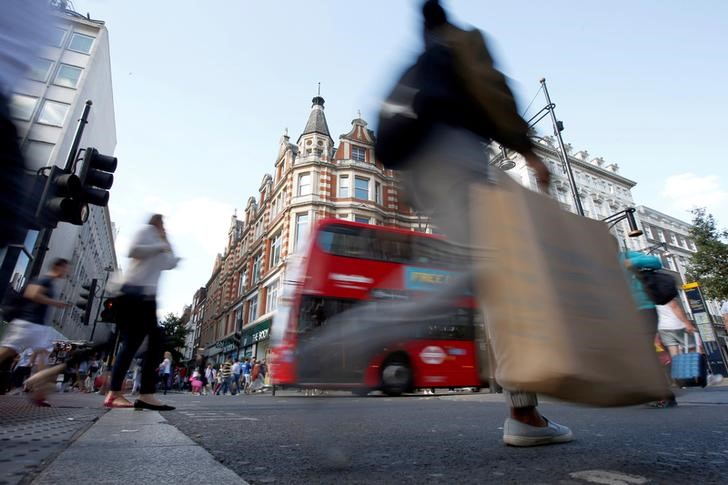BRUSSELS (Reuters) - Euro zone retail sales dipped in August after a July rise much lower than initially estimated, data released on Wednesday showed, in a sign British vote to leave the bloc may have had a greater impact on the euro zone than previously thought.
EU statistics office Eurostat said August retail sales in the 19-country currency bloc dropped 0.1 percent month-on-month and rose 0.6 percent on the year.
The monthly drop, the first since March, is less marked than the 0.3 percent fall forecast by economists polled by Reuters, but the yearly figure is not as great as the average expectation of a 1.5 percent increase.
The August monthly fall sales is compounded by a large revision of July data. Eurostat had initially estimated a monthly rise of 1.1 percent, the largest monthly gain this year, but on Wednesday brought down the July figure to an increase of just 0.3 percent.
The yearly figure was also revised down from an increase of 2.9 percent to one of 1.8 percent.
Eurostat said the revision was mostly due to reduced sales figures in Germany and France, the two largest economies of the euro zone. The French revision, from a gain to a fall, may have been the result of the Nice truck attack on July 14.
The July figures had been closely watched as they were the first retail sales data after the June 23 British referendum to quit the European Union.
The revised figures show that euro zone consumer morale and spending may have taken a greater hit from the British referendum than initially estimated. UK retail sales also fell in August after a July increase.
In a sign that consumers may have adapted their spending to what they perceived as a gloomier scenario in August, they cut purchases mostly on food, drinks and tobacco products, which dropped 0.4 percent on the month despite the holiday season.
Discretionary spending on non-food products, such as textiles and computer equipments, also went down by 0.1 percent on the month.
Purchases of car fuel went up by 0.2 percent in August, with lower oil prices, but that rise was much milder than the 1.8 percent increase recorded in July.
